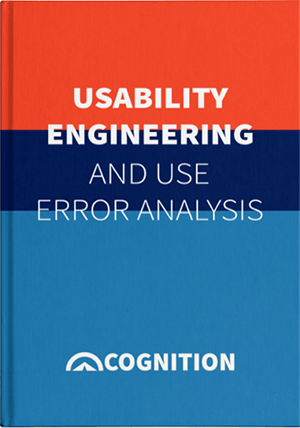Cognition Blog
Our blog navigates product development and compliance for the life science industry. Our solutions save time and money, delivering products with less risk.

Medical Device | Product Development | Risk Management | Webinar
By:
David M. Cronin
September 9th, 2022
Medical device development is a complex process, with a critical element focusing on risk management. The consequences of not managing risk properly can be catastrophic.

design controls | Product Development
By:
Ansgar Liening
June 15th, 2022
An introduction to how smart data utilizes information and actionable context to support business-critical decisions.

Subscribe to the blog and get this guide for free

cockpit | Medical Device | Compass | Change Management
By:
Dale Gallaher
October 19th, 2021
“The Only Constant in Life Is Change.”- Heraclitus Managing information goes straight to the heart of managing change. Why? Because without a rationale, checks and balances, evidence, and assurance of safety, information change – if left unchecked – can potentially lead to hazardous situations. This is especially critical in the intensely regulated medical device industry.

Medical Device | Product Development | Risk | Risk Management
By:
David M. Cronin
September 28th, 2021
In the highly regulated world of medical device manufacturing, the relentless requirement to minimize and mitigate risk places a huge onus on design, development, and manufacturing teams. That’s why companies, large and small, are looking for software solutions to help ensure consistency and objectivity in the creation, auditing, and monitoring of critical risk management processes.

Medical Device | Product Development | reusability
By:
Bradley Sylvestre
September 14th, 2021
Key takeaway: The ability to reuse product data can dramatically reduce the time taken to design, gain regulatory approvals, and ultimately bring new medical devices to market. Time equates to money in any business, and in the world of medical device design and manufacturing, that can mean BIG numbers! Depending on the route taken, following FDA regulations, the average cost to bring a medical device to market through the Premarket Approval pathway is $94 million. The less intensive 510(k) process averages out at $31 million.

design controls | Medical Device | Product Development | Risk | Risk Management
By:
David M. Cronin
August 17th, 2021
Using unstructured tools such as Word and Excel when doing risk management for medical devices could result in harm to a patient. Why? Because many medical devices are complex, with hundreds to thousands of inter-related design inputs/outputs, testing, and risk management data. Managing that amount of data manually is nearly impossible when using tools like Word and Excel...

By:
Gerald Wesel
April 21st, 2021
The delicate balance between investing and cost-saving at a venture-backed startup or SME is challenging. Particularly at pre-revenue, the CEO and leadership team must steward the capital responsibly and make tough decisions about where to invest – decisions that affect the company’s survival and success.

By:
Cognition Corporation
February 15th, 2021
Giving customers more time to focus on developing great products. If you are part of a product development team, you know how tedious and time-consuming documentation can be to manage in various word or excel files. We set out to solve that problem over 10 years ago when we launched our solution, Cockpit. Our goal was to provide a unified and scalable environment to enable companies to structure data and automate processes for more efficient and accurate product development.

design controls | Compass | 21 CFR 820.30 | EU MDR
By:
Sally Carter
January 27th, 2021
Imagine developing a medical device or drug that could be claimed to work without any evidence….

info@cognition.us
1 (781) 271-9300
24 Hartwell Avenue,
Lexington, Massachusetts 02421
©2026 Cognition Corporation | Privacy Policy